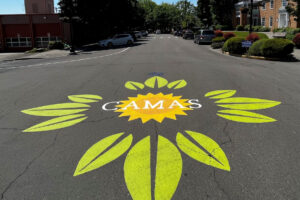Camas voters will soon decide who will lead their city for the next four years.
There are two candidates vying to be Camas’ mayor in the Nov. 7 General and Special Election: Camas Mayor Steve Hogan and his opponent, Randal Friedman.
Both candidates recently spoke with The Post-Record about why they chose to run for Camas’ “strong mayor” position, a role that, with the assistance of the city administrator, is responsible for managing the day-to-day business of the city and for coming up with a biennial budget based on the needs of the city’s departmental leaders and the policies set by the Camas City Council.
The incumbent: Steve Hogan
Camas Mayor Steve Hogan has a long history of serving Camas as a public servant and volunteer. Prior to being elected mayor in 2021, Hogan served on the Camas City Council for 16 years and was elected by his peers as the city’s mayor pro tem in 2014, 2017 and 2021. He also has served on the city’s finance committee, planning commission, Georgia-Pacific Mill Advisory Committee, and on the board of directors for the Columbia River Economic Development Council and the Clark County Ending Community Homelessness organization.
Hogan has volunteered with the Camas-Washougal Rotary Club, was a founding board member of the Downtown Camas Association, served as the president of the Camas Education Foundation and was a youth soccer coach for three decades.



